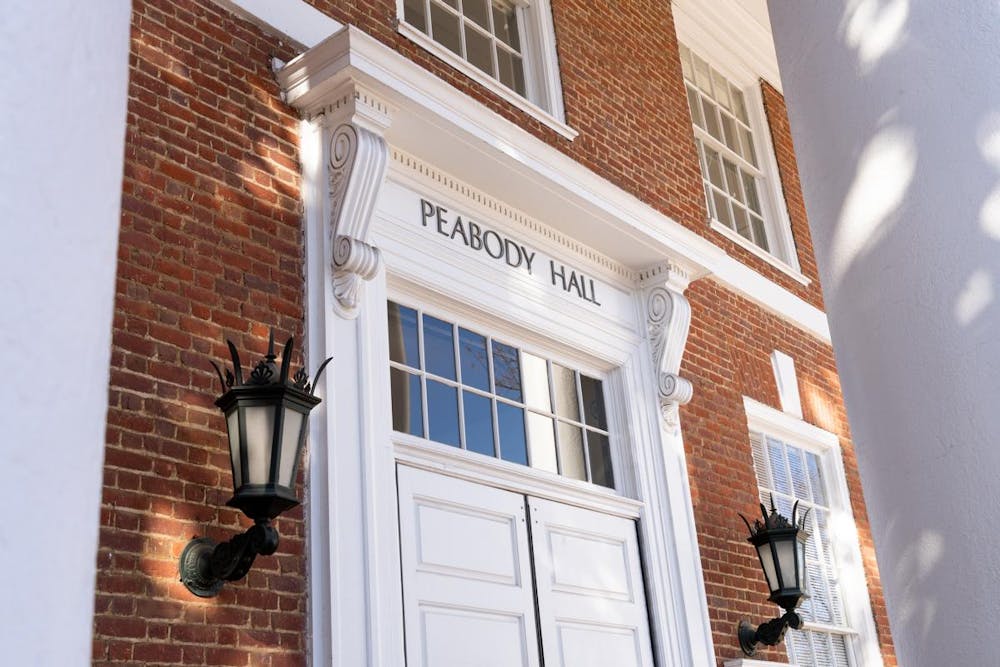For high school seniors, it is time to apply to colleges. However, for those of us on college campuses, it is time to reflect on the first year of admissions post-affirmative action. Unlike the majority of institutions similar in caliber and size, the University was largely successful in admitting a diverse class of students without the traditional affirmative action tools. This laudable success can be attributed to the manner in which the University has creatively spearheaded programs that target under-resourced communities in the Commonwealth and actively solicit applications from them. In this way, the University has created a new playbook for admissions, one which deserves to be thoroughly applauded for its transformative creativity and legal sustainability.
The Supreme Court dismantled the legal foundation for affirmative action at American universities in June 2023. Immediately, universities and their admissions offices were thrown into turmoil. Many predicted that this ruling would fundamentally diminish universities’ abilities to admit diverse classes. In this first year post-affirmative action, these predictions have largely been proven correct. The reality is that many universities experienced a drop in the number of minority students admitted. University of North Carolina at Chapel Hill, for example, experienced an extreme decline in the number of Black and Hispanic students. The University, in contrast, saw a relatively small decline in the number of Black students in addition to increases in the number of Hispanic and first-generation students. In short, the University succeeded where many other institutions faltered.
The University has relied on a wide array of programs which have allowed it to commit to the mission of diversity while staying well within the bounds of the law. Specifically, instead of looking to intervene at the level of admittance, it has doubled down on programs which target a major source of the problem — encouraging applicants from underserved communities.
Primarily, this means that administration has reprioritized programs which play a critical role in helping students from marginalized communities apply to the University. For example, the Virginia College Advising Corps works to connect college advisers with high schools across the Commonwealth in order to increase the number of low-income, first-generation and underrepresented high school students who enter higher education. In addition, the University has employed Uplift@UVA, a hybrid program that targets seven counties in central Virginia with high amounts of low-income, first-generation high school students by providing academic counseling services to students. Perhaps most importantly, however, the University has also committed to covering tuition for all in-state students whose families make less than $100,000 per year.
What is truly radical about this approach is not simply that it has mitigated the effects of the Court’s decision. Rather, what is truly impressive is the efforts made to switch from reactivity over the leveling of the University’s admissions playing field to proactivity in advancing equity within K-12 education. By laying the groundwork for equitable access to a University education, the University takes steps toward creating the conditions which make an affirmative action policy completely unnecessary.
Yes, the University has achieved something through these programs which will undoubtedly benefit the University’s own community. But beyond that, these programs will hopefully become the start of sustained efforts on behalf of universities to ensure equitable access to education long before the Common App. Experts have discouraged reading too deeply into this first year of statistics — good or bad, they could be outliers. With this in mind, however, the University cannot grow complacent. Rather, the institution must continue to develop programs that serve the diverse students which comprise the Commonwealth.
While this cycle has been positive for the University, challenges to affirmative action informed policies did not and will not end with one Supreme Court ruling. In fact, various groups seem intent on challenging this most recent admissions cycle, alleging that universities did not comply with the ruling. In light of this ongoing battle, the University must remain committed to putting students of all backgrounds in positions to achieve great success. Through sustained effort, the University can move beyond merely operating in a world without affirmative action and begin creating a world that does not need affirmative action.
The Cavalier Daily Editorial Board is composed of the Executive Editor, the Editor-in-Chief, the two Opinion Editors, their Senior Associates and an Opinion Columnist. The board can be reached at eb@cavalierdaily.com.







